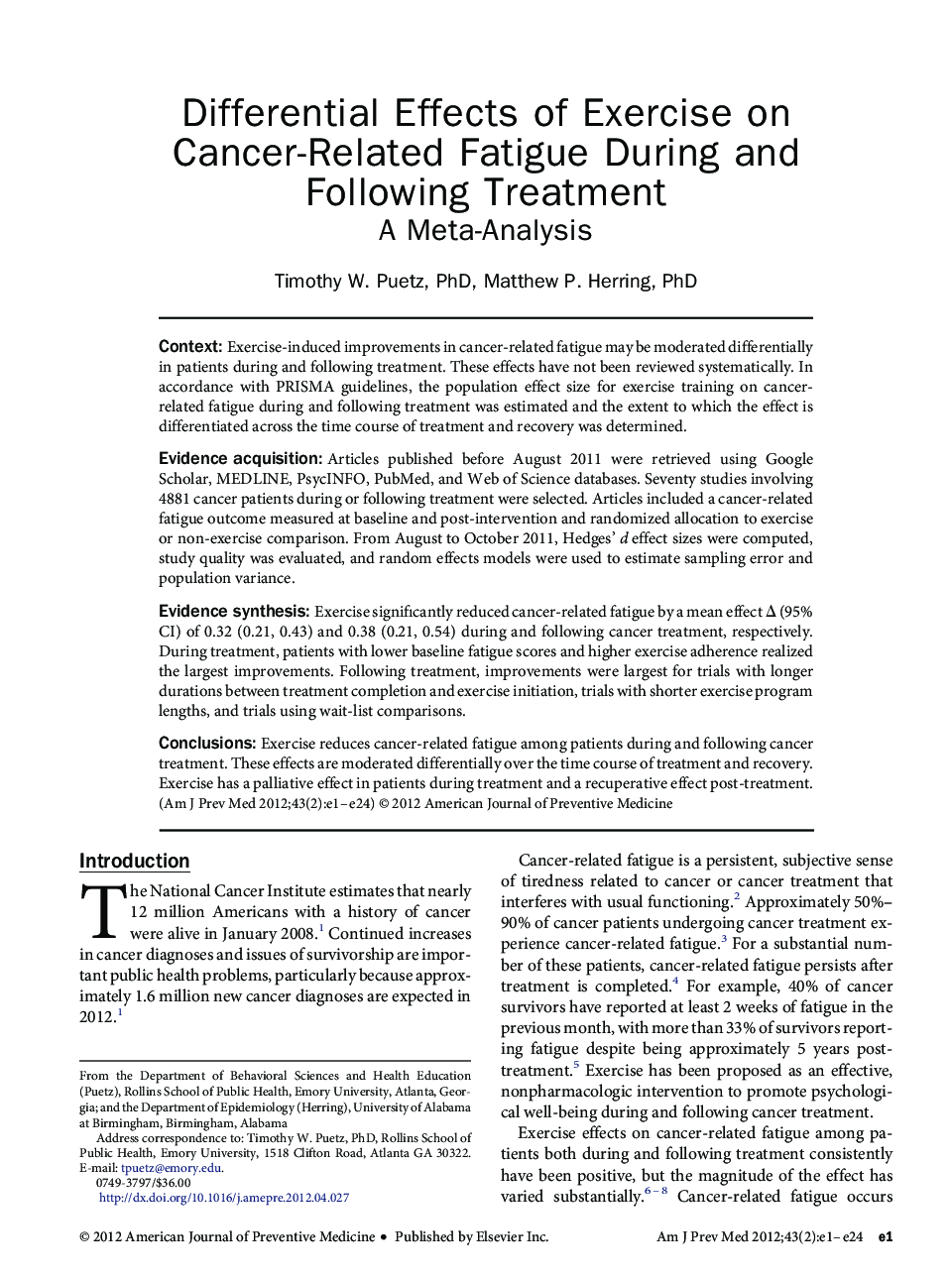| کد مقاله | کد نشریه | سال انتشار | مقاله انگلیسی | نسخه تمام متن |
|---|---|---|---|---|
| 4192641 | 1608687 | 2012 | 24 صفحه PDF | دانلود رایگان |

ContextExercise-induced improvements in cancer-related fatigue may be moderated differentially in patients during and following treatment. These effects have not been reviewed systematically. In accordance with PRISMA guidelines, the population effect size for exercise training on cancer-related fatigue during and following treatment was estimated and the extent to which the effect is differentiated across the time course of treatment and recovery was determined.Evidence acquisitionArticles published before August 2011 were retrieved using Google Scholar, MEDLINE, PsycINFO, PubMed, and Web of Science databases. Seventy studies involving 4881 cancer patients during or following treatment were selected. Articles included a cancer-related fatigue outcome measured at baseline and post-intervention and randomized allocation to exercise or non-exercise comparison. From August to October 2011, Hedges' d effect sizes were computed, study quality was evaluated, and random effects models were used to estimate sampling error and population variance.Evidence synthesisExercise significantly reduced cancer-related fatigue by a mean effect Δ (95% CI) of 0.32 (0.21, 0.43) and 0.38 (0.21, 0.54) during and following cancer treatment, respectively. During treatment, patients with lower baseline fatigue scores and higher exercise adherence realized the largest improvements. Following treatment, improvements were largest for trials with longer durations between treatment completion and exercise initiation, trials with shorter exercise program lengths, and trials using wait-list comparisons.ConclusionsExercise reduces cancer-related fatigue among patients during and following cancer treatment. These effects are moderated differentially over the time course of treatment and recovery. Exercise has a palliative effect in patients during treatment and a recuperative effect post-treatment.
Journal: American Journal of Preventive Medicine - Volume 43, Issue 2, August 2012, Pages e1–e24